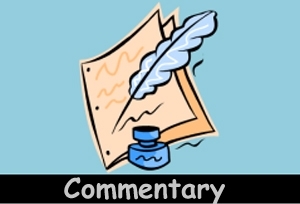
The Indian prime minister’s visit was not welcomed from the beginning by Islamist parties, the largest being Hefazat-e-Islam for his Muslim hate policies. But the government did not pay any heed to the sentiments expressed by the Islamist parties. The government showed no consideration to be restrained in their enthusiasm with the presence of Mr Narendra Modi. Istead, the government took strictest security measures. They had long talks with Modi as if his anti-Muslim provocations meant nothing to the government. The government’s indifference about the fact that ours is a Muslim country and Mr Modi is pursuing extremist policies including his plan to expel Muslims from India.
By ignoring Mr Modi’s antagonism against Muslims, the government has aggravated the crisis in the country. One could not avoid to see the government’s eagerness to please Mr Modi. Our government should be our government and the religious sentiments of our people have to be duly taken into consideration.
While welcoming the Indian prime minister our government at one stage or other could have also as diplomatically as possible expressed our people’s feelings in the interest of friendly relations between the two countries. For not doing so the government looked too subservient and the crisis in the country has been deepened for the government and the people.
The countrywide dawn-to-dusk general strike announced by Hefazat-e-Islam Bangladesh turned into violent clashes in Brahmanbaria, Dhaka, Chattogram and other districts on Sunday, protesting against killing of its activists by police and attack on them by supporters of the ruling party on Friday and Saturday during their demonstrations against Indian Prime Minister Narendra Modi’s visit to Bangladesh as part of celebration of the country’s 50th anniversary.

At least three more Hefazat activists were killed and dozens other injured in clashes with law enforcement agencies in Brahmanbaria on Sunday, bringing the total number of deaths to 13 so far in the country. Some injured people were brought to the Brahmanbaria General Hospital and two of them died. Another activist, who sustained injury during Saturday’s clash, succumbed to his injuries yesterday at the same hospital, hospital sources confirmed.
The activists of Hefazat- activist attacked the Zila Parishad, district Awami League office, local press club and municipality offices during the hartal. They also vandalised and set fire to a number of government offices there. At one stage, police and BGB members opened fire to disperse them. Some protesters sustained bullet injuries during the clash. In Dhaka, Hefazat leaders and activists staged protests in front of the Baitul Mukarram mosque. In Chattogram, Hefazat staged demonstration taking position on roads in Patiya Upazila where all vehicular movements remained suspended since the morning. At least five buses were torched in some areas of the capital and two BRTC buses in Rajshahi since Sunday morning.
While Mr. Modi’s trip is mainly focused on Bangladesh’s golden jubilee celebrations, the visit also has political implications in India, where voting began Saturday in several state-level elections, including West Bengal and Assam which border Bangladesh. Mr. Modi visited a Hindu temple outside Dhaka that is sacred to the Matua community in West Bengal, hoping to draw critical votes in that state.

